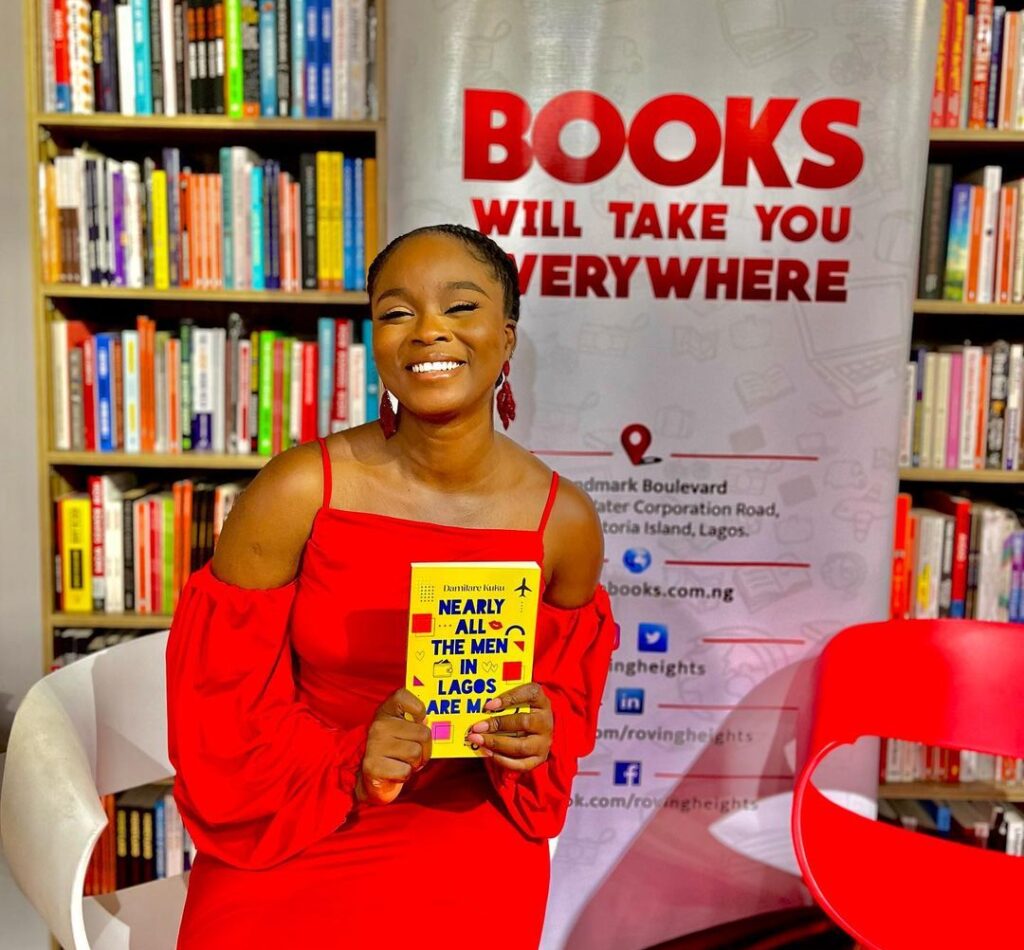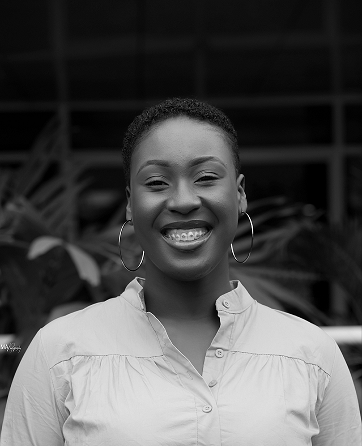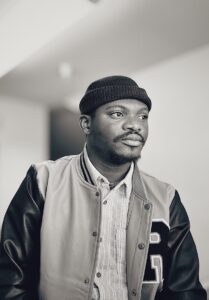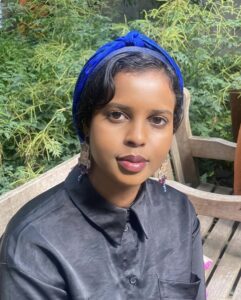When the actress Damilare Kuku first announced, in early 2021, that she would publish a collection of short stories titled Nearly All the Men in Lagos Are Mad, there was a minor uproar on Nigerian Twitter. Some people were curious about the title; others were offended by it.
The title — a typical expression of amusement or resignation, a quip at the end of gossip — came to her long before she began writing the stories, after she had just finished praying one night in her apartment in Yaba, Lagos.
Like its American counterpart, New York City, Lagos is often situated at the center of much of Nigerian fiction — Teju Cole’s Every Day Is for the Thief, Sefi Atta’s Swallow, and Chibundu Onuzo’s Welcome to Lagos come to mind — a star quality borne as much from its possibilities as from its raucousness and twists.
Kuku understands that the “madness” of the city is what makes it so interesting. “I don’t necessarily want to partake in it,” she told me, “although, I don’t think it’s a thing of choice. Once you live in Lagos, you’re a part of the unending chaos.”
It is chaos that sometimes does not leave room for courtesy, and so terrains like romance become murky. Ill luck in love has become an inextricable part of stories about women in Lagos, especially in film, like in Mo Abudu’s A Sunday Affair, and on TV, as with the Africa Magic series The Smart Money Woman. Sometimes it’s darker. Kuku’s own lead character in the new film The Wildflower is a woman dealing with sexual abuse and a culture of silence, the latter a subject that Blood Sisters, another of Kuku’s credits, explores.
Kuku started writing the stories after her friend was dumped during Christmas. She then used the expression — Nearly all the men in Lagos are mad — to frame the overarching experiences of her characters, but not merely in finding love. “Mostly, the women are looking for kindness,” she added. “They’re looking for empathy.”
The collection has 12 short stories, each following different women navigating relationships in Lagos. And across these tales is a generous depiction of sexual activity. These were why, upon release in 2021, demand for the book was unlike anything its publisher Masobe Books had previously handled. And as with all in-demand books in Nigeria, piracy swooped in.
“This was that book that could have hit impossible numbers,” Masobe Books founder Othuke Ominiabohs told me. “But it was suddenly everywhere: in the streets, in WhatsApp group chats, in people’s phones as PDF. Almost every random person I met at the time had a free PDF that they were eager to share. Some online bookstores who specialized in eBooks were illegally selling PDFs for N500, and they even had the audacity to advertise. I believe we lost a huge revenue to these leaks.”
But the ubiquity of pirated copies did not entirely eclipse legitimate sales. In February, almost two years after the book’s publication, it topped The Rovingheights Bestseller List: Presented with Open Country Mag, the first-ever formal bestseller list in Nigerian literature. It is even more remarkable that its 2,204 copies sold was over triple that of the No. 2 book: Bolu Babalola’s Honey and Spice. At Rovingheights, the country’s biggest bookstore, only one other book has ever had comparable lifetime sales: Ayobami Adebayo’s 2017 novel Stay with Me.
“I think a lot of women gravitated towards this book because it is some form of solidarity cry,” Rovingheights founder Tobi Eyinade said. “It’s like Kuku is clamoring, ‘I see you ladies, you are not alone. Come benchmark the levels of craziness and bizarre ordeals you’ve experienced in the hands of men with [those] of the women in this book.’”
Kuku, who describes the book as a love letter to women, agreed. “People connect with the stories because they want to know they are not alone in that.”
Contrary to the conventional wisdom in American and British publishing that short story collections don’t sell, Eyinade told me that the fact that Nearly All the Men in Lagos Are Mad is a collection helped its chances. It is, for book buyers, a relatively easier read. (This, in itself, is a reflection of Nigerian reading culture.) Other reasons, aside the stories themselves, might be the book’s favorable price as well as its title.
“Some people consider the title to be fallacious at first sight,” Eyinade said. But “its effrontery propels them to buy it and find out why any author would make such a bold statement. In the end, they are confronted with riveting stories that leave them turning pages and eventually agreeing that, perhaps, there is an element of truth here — that some Lagos men are a special breed of crazy.” ♦
Otosirieze contributed to this story.
If you love what you just read, please consider making a PayPal donation to enable us to publish more like it.
No One Covers African Literature Like Open Country Mag
— With God’s Children Are Little Broken Things, Arinze Ifeakandu Garners Breakout Acclaim
— “Friendship, to Me, Is What Saves One’s Sanity”: Wole Soyinka
— Cover Story, December 2022: Chinelo Okparanta, Gentle Defier
— African Comics Cross into Literature
— Sillerman Prize Winner Tares Oburumu on Surviving Life and Writing Poetry
— Cover Story, April 2022: The Next Generation of African Literature
— Cover Story, February 2022: The Methods of Damon Galgut
— In Conversation with Lan Samantha Chang, Director of the Iowa Writers’ Workshop
— Cover Story, September 2021: Chimamanda Ngozi Adichie Is in a Different Place Now
— Cover Story, July 2021: How Teju Cole Opened a New Path in African Literature
— Cover Story, January 2021: With Novels & Images, Maaza Mengiste Is Reframing Ethiopian History
— Cover Story, December 2020: How Tsitsi Dangarembga, with Her Trilogy of Zimbabwe, Overcame





